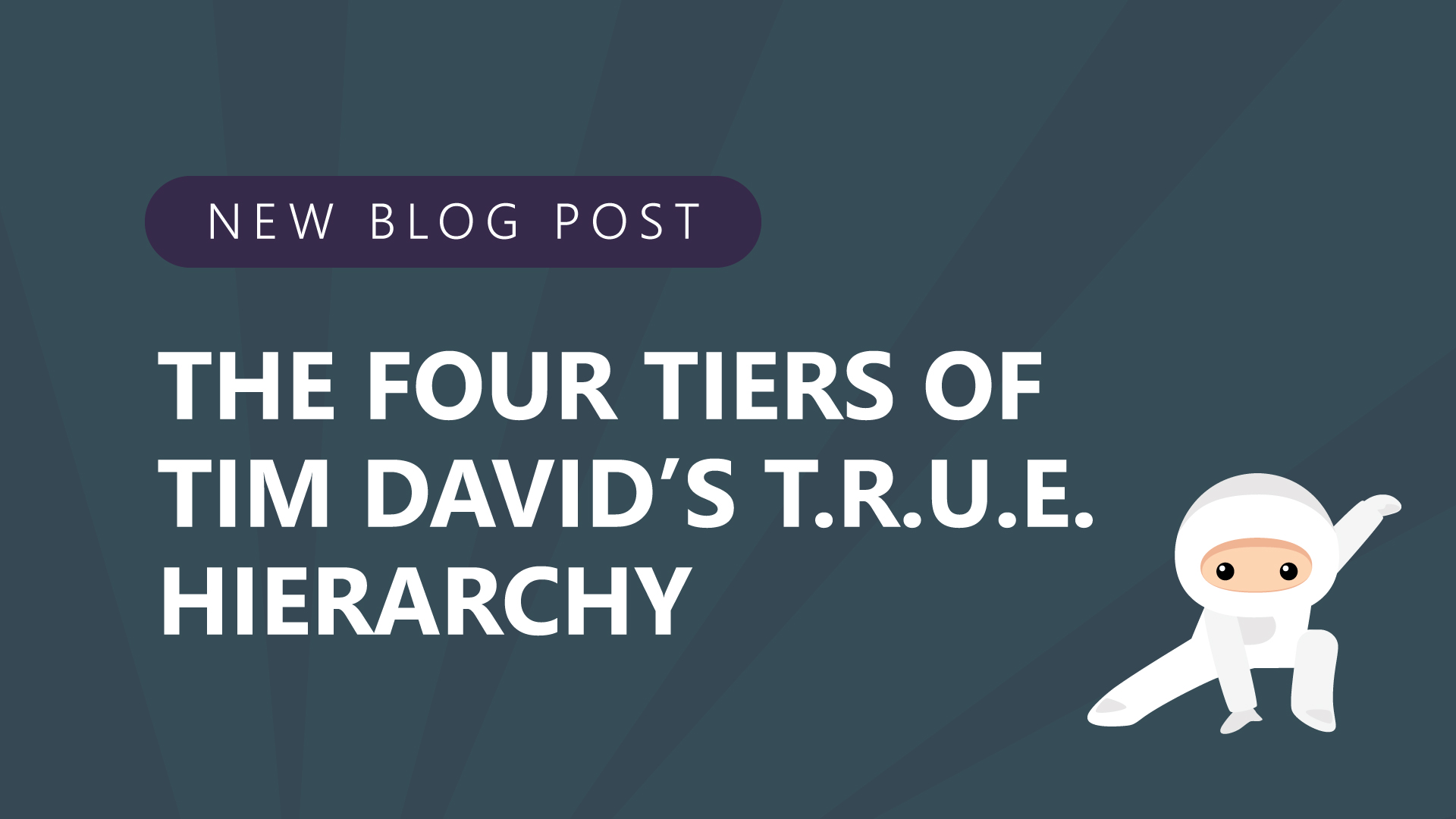Tim David is a magician turned influence and communication expert. He frequently works with businesses and salespeople to master the art of connection. He takes the knowledge of persuasion and influence and makes it scalable and usable across the business realm. In the process, Tim covers the T.R.U.E hierarchy. What does it consist of?
The T.R.U.E hierarchy of needs
Technique. A lot of books, coaches, and websites stop with the techniques. They act as if once you’ve learned proper technique that everything else falls into place. But Tim emphasizes that good techniques can only get you so far.
Tim spoke at a conference where he scripted the perfect presentation. He took every technique in the book and applied it. He tried to sell a course at the end. He sold nothing. Other speakers—who were awful salespeople—had people storming the back of the room to buy their stuff. Tim’s mind was blown. He realized that the second tier had to come into play: relationships.
Relationships are why you buy girl scout cookies from your niece. It’s why Oprah can go on TV and say “I’m reading this book, you should read it.” It will become an instant best-seller because of the relationship and connection that she has with her audience. Relationship trumps technique.
The “U” stands for understanding. Some people hit it off and there’s an instant connection. Tim spent a year working on a suicide hotline and learned that it can be difficult to instantly connect with and hit it off with someone who is in a very different place than you. If someone is a criminal or committing a crime or in a very dark place, that automatic connection won’t be there.
What do you do in those cases? That’s where understanding comes in. You have to understand their perspective. How are they interpreting what they see? What’s happening in their mind? Anyone studying influence should understand psychology. If you work with people you want to know how people work.
E stands for ethics. You have a responsibility to connect first. You must be a person of strong character. Influence is not a short-term game. Your ethics and character will continue to reflect on your influence ability long-term.
Perception is reality
You have to put yourself into other people’s shoes. A different perception comes with the reality that they see. Good stage acts talk about how perception is reality to their audience. We miss that in the sales context. We sell from our own perspective and what we perceive the benefits of the customer to be. We instead need to understand what the benefits could be to the customer.
Secondly, you want to understand people, psychology, and the brain. Every person is an individual that belongs to a tribe. Maybe they’re an employee of a company. So if you go on their website to understand the company, you have a head start. You have to learn about them from the level of the individual, the tribal level, the cultural level, and then the human level. Researching each gets you closer to more understanding.
If you want to learn more about how connection leads to influence, listen to episode #185 of the Negotiations Ninja podcast. Tim goes deep into a discussion of human connection, connecting on an emotional level, and discusses each of his books in detail. Don’t miss it!

